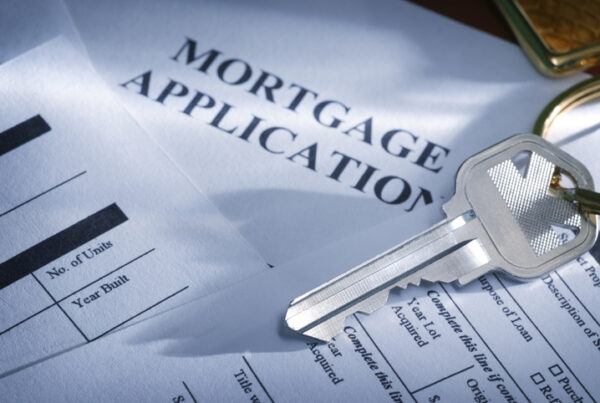Divorce can feel overwhelming, especially when financial issues are involved. If you’re struggling with debt after divorce, you’re not alone. Many people find themselves facing unexpected financial burdens after a separation.
But there is a way forward. No matter how complicated your situation feels right now, solutions are available to help you regain control of your finances and start fresh. We are here to help guide you toward the divorce debt relief you need.
Table of Contents
-
- Divorce Couples and Debt – How We Can Help
- Unique Challenges That Come with Divorce
- How Debt is Split After Divorce
- FAQs
- Can Divorce-Related Debts Negatively Impact My Credit Score?
- Who Loses More Financially in a Divorce?
- Am I Responsible for My Spouse’s Debt After Divorce?
- What Will I Lose if I Get Divorced?
- DRS Solutions: Finding Debt Relief After Divorce
Divorce Couples and Debt – How We Can Help
According to surveys administered by Debt Reduction Services, divorce ranks as the third most common life event that leads individuals to consider filing for bankruptcy. For those who haven’t experienced divorce, this is a surprising statistic. But for those who have gone through it, it’s all too clear how the financial strain of separating assets and managing shared debt can make bankruptcy seem like the only option.
At Debt Reduction Services, we specialize in helping individuals navigate the financial challenges that arise from major life events like divorce. We understand the emotional and economic difficulties of divorce and offer tailored solutions to guide you toward debt relief after divorce.
Whether it’s exploring debt relief programs, learning how to handle debt collectors when you can’t make a payment, or helping you create a manageable budget, we’re committed to supporting you every step of the way. Call us today at 866-688-3328 for additional support, guidance, and assistance in achieving divorce debt relief.
Unique Challenges That Come with Divorce
Divorce presents several unique financial challenges that can quickly lead to debt after divorce. From splitting assets to managing shared financial responsibilities, here are some of the most common challenges:
- Splitting Into Two Households: Expenses double, like rent or mortgage, utilities, and transportation, making it harder to manage your finances—especially if you’re becoming a single parent
- Significant Attorney Fees: Legal costs can accumulate quickly during a divorce, adding to financial strain
- Difficulty Reentering the Workforce: A spouse who has been out of the workforce may struggle to find meaningful employment to achieve financial stability
- Common Property Law States: In certain states, both spouses may be held responsible for debts, even if only one incurred them
- Revenge Spending: Emotional challenges can lead to unnecessary spending, where one spouse racks up significant debt out of frustration, anger, or a desire to “get even”
While the divorce decree may specify how debts should be divided, creditors are not bound by these arrangements. The court cannot force creditors to remove one ex-spouse’s name from a given account and cannot compel either spouse to pay their bills. Regrettably, it is not uncommon for one ex-spouse to file for bankruptcy only to have the other file just a few months later.
How Debt is Split After Divorce
One of the most complex aspects of divorce is determining who is responsible for the existing debts. In many cases, debt is divided just like other marital assets. However, the process for splitting debt varies depending on the type of debt and the state in which you live.
- Credit Card Debt: If the credit card is in both spouses’ names, both are typically responsible, regardless of who incurred the debt. If the card is in only one spouse’s name, the debt may be assigned to that spouse unless it was used for joint expenses.
- Mortgage Debt: If the home is jointly owned, both spouses are often responsible for the mortgage, even if only one continues to live in the house. This can create complications if one party cannot keep up with payments.
- Auto Loans: If both names are on the auto loan, both parties are responsible. Even if the divorce decree assigns the car to one spouse, creditors can still hold both parties accountable if payments are missed.
- Student Loans: These are generally considered individual debts unless a spouse co-signed for the loan. Each person is typically responsible for their own student loan debt.
Understanding how debt is split can be confusing, and it’s important to remember that divorce decrees do not bind creditors. You could still be held responsible if your ex-spouse doesn’t pay their assigned debts. Fortunately, seeking divorce debt relief through Debt Reduction Services can help you navigate these challenges and avoid financial pitfalls like payday loans and bankruptcy.
FAQs
Can Divorce-Related Debts Negatively Impact My Credit Score?
If joint debts aren’t paid on time, your credit score can suffer—even if your ex-spouse was assigned responsibility for those debts. Monitoring your credit and staying on top of shared financial obligations is crucial to protect your credit score.
Who Loses More Financially in a Divorce?
Both parties can face financial setbacks after a divorce, but the impact depends on factors like income, asset division, and debt responsibilities. Typically, the spouse with fewer economic resources or less earning potential may experience more significant financial strain.
Am I Responsible for My Spouse’s Debt After Divorce?
In some cases, yes. If the debt was incurred during the marriage, you may still be held responsible, especially in states with common property laws. Even if the divorce decree assigns responsibility, creditors may still seek payment from either spouse.
What Will I Lose if I Get Divorced?
The financial impact of divorce can vary greatly, but common losses include shared assets, retirement savings, and potentially a decline in income due to supporting two separate households.
DRS Solutions: Finding Debt Relief After Divorce
If you or someone you love and care about is going through (or has recently gone through) a divorce, here are some important resources and steps to consider:
- Request Removal from Joint Accounts: Ask creditors to remove your name from any accounts you are not responsible for according to the divorce decree. While not all creditors will comply, many have a process to handle these requests. Be prepared to provide a certified copy of the divorce decree.
- Monitor Your Credit Report: Keep a close eye on your credit report before, during, and after your divorce. Your ex-spouse likely knows your personal information and could misuse it. Use AnnualCreditReport.com to access your free credit reports.
- Consider a Credit Freeze: Add a credit freeze to your reports through Equifax, Experian, and TransUnion. This adds a layer of protection; only you will have the PIN required to lift the freeze. Though there may be a small fee, it can be worth the peace of mind.
Don’t forget to take advantage of our free webinars, which cover topics like savings, household budgeting, spending strategies, managing money in relationships, and more. These are valuable resources to help you regain control over your financial future. In addition to these resources and our self-help debt relief guide, we can help you achieve debt relief after divorce through our debt management programs and free credit counseling services.
If you’re ready for personalized support, contact Debt Reduction Services at 866-688-3328 for guidance on navigating divorce debt relief and starting your path to financial recovery.
About the Author
Author and Accredited Financial Counselor®, Todd R. Christensen, MIM, MA, is the Education Manager for Debt Reduction Services, a nationwide nonprofit financial wellness and credit counseling agency. Todd develops educational programs and produces materials that teach personal financial skills and responsibilities to all ages. He’s also the author of the book Everyday Money for Everyday People.











